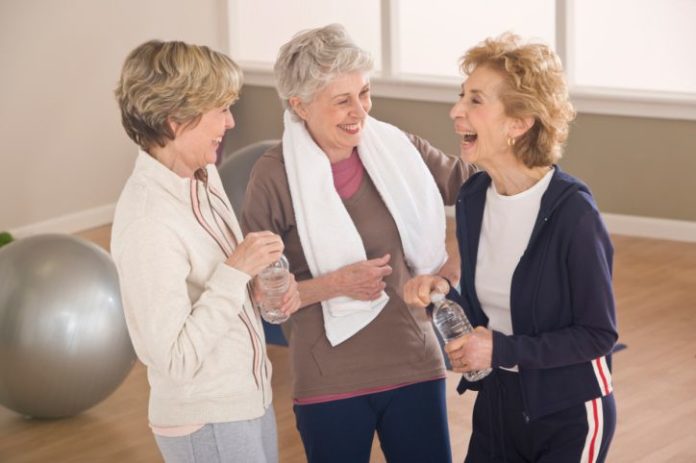Extensive research has been recently conducted into the benefits of exercise in protecting your heart, irrespective of what age you are and when you start. Given that it’s World Heart Day this week, it’s a timely reminder that it’s never too early or too late to start exercising to ensure you have a healthy heart.
Prof. Steve Selig, Chair, Clinical Exercise Science at Deakin University says that studies published by the American Heart Association’s journal Circulation, reported that previously unfit individuals in their 50’s, 60’s, 70’s and even 80’s can improve their heart health and reduce their chances of heart attacks by engaging in regular moderate intensity exercise.
You do not need to go to the gym; it can be as simple as gardening, housework and brisk walks totalling around 2.5 hours of exercise per week. A little bit of regular exercise on most days of the week can provide big benefits in terms of physical and mental health, energy and happiness.
At the other end of the spectrum, a recent Canadian study published in the Archives of Pediatrics & Adolescent Medicine, showed that children engaging in less than 10 minutes of vigorous exercise as part of their daily routine appeared to provide an increased heart-protective benefit.
Exercise & Sports Science Australia’s Executive Officer, Anita Hobson-Powell says it’s important to remind people that anytime is a good time to start exercising to protect your heart and cultivating activity in children sets them up for good health in adult life.
“The Canadian study showed that as little as seven minutes a day of intense physical activity for children was associated with significant reductions in body weight and blood pressure levels, as well as increased fitness,” said Ms Hobson-Powell.
“And for those thinking about getting more active in midlife, we recommend it’s as simple as walking down to the corner store rather than driving, playing Frisbee in the park or on the beach and focussing on getting active at least once a day to get your heart-rate up.”
“It’s all about the little changes you make in your daily life to incorporate exercise and if you feel you’re not in the right shape to start exercising alone, ask your GP for a referral to your local Exercise Physiologist to help get you started in a manageable and safe way.”
To find a local accredited Exercise Physiologist please visit the Exercise & Sports Science Australia website at www.essa.org.au and enter your suburb or postcode.
Top Tips for getting active
Kids & Adults
- Garden games such as egg and spoon races, sack races, skipping ropes and tag
- The ever-popular disco party, pump up the music, dim the lights and get the party started!
- A good run-around at the beach or the park. Try flag races, setting up a race track and timing kids as they run a lap or creating a horse jumping course with obstacles for your little ponies!
- Exploring the neighbourhood on bikes, skateboards or scooters – why not give them a purpose and get them to count houses!
- Walking the dog or the neighbour’s dog is a great opportunity to get out and get active and a good way to teach your kids how to look after the fluffy member of the family!
- Playing games with your children: this will get the parent fit too!
- Find yourself a buddy so you can keep each other motivated and have regular exercise times and days.
- Vow to avoid all lifts where possible, find out where the stairs are and put them to good use to get your heart rate going! If you have one flight of stairs to do, then go and up and down 3 or 4 times instead. It only takes another minute!
- Invest in a pedometer and set yourself a target for every day.
- Get a few families together and organise a tennis tournament at the local club, try to partner people according to their skill for maximum fun!
- Take the furthest parking space rather than the closest and take the opportunity for a brisk walk to up the heart rate.
- Use active transport (bike, walking) whenever you can and try to think how you can make your office job more active; for instance go and talk to people in your office instead of sending another email.
- See household tasks as opportunities to get fitter and stronger, not as chores.
Source: Australian Healthcare and Hospitals Association
Kindly sponsored by Anaconda.










